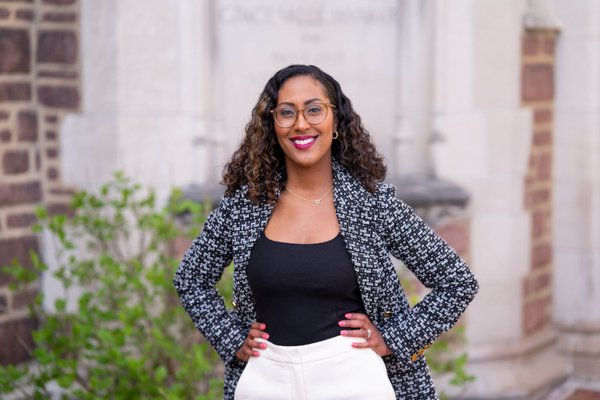
Colloquium: #TheBlackDelegation: Transplatform Networks and Black Political Organizing
- Event Type
- Lecture
- Sponsor
- Department of Communication
- Location
- 1090 Lincoln Hall
- Date
- Feb 2, 2024 3:30 - 5:00 pm
- Contact
- Brooklyne Gipson
- bgipson@illinois.edu
- Views
- 79
- Originating Calendar
- Campus Humanities Calendar
Dr. Raven Maragh-Lloyd (Washington University in St. Louis) will join us to discuss topics from her new book, Black Networked Resistance: Strategic Rearticulations in the Digital Age (University of California Press). In the book, Maragh-Lloyd explores resistance strategies online as a whole story to be told rather than ideologically separate struggles. She will discuss chapter four’s exploration into the common refrain “The Black Delegation has voted” and its related hashtag (#TheBlackDelegation) as a springboard to think about the role of Black political organizing in the social and rhetorical makeup of Black digital culture.
Dr. Maragh-Lloyd received her Ph.D. in Communication and Media Studies from the University of Iowa in 2018. Her work primarily highlights how Black and African-American publics tap into long-existing media channels of communication toward the goals of community and visibility. Her scholarship and teaching center critical race and gender studies in investigating the social and cultural tools used to challenge established institutions and narratives.
In this colloquium, Maragh-Lloyd will share her work, which explores historical Black political delegations, such as the Colored Conventions and the Mississippi Freedom Democratic Party (MFDP), to reveal how 19th-century delegates understood themselves and the delegation process. Building on work by digital historian Gabrielle Foreman, she analyzes documents such as the meeting minutes of the Conventions to show, among other themes, the diversity that the delegates showcased amongst themselves (“black, white, maids, ministers, farmers, painters, mechanics, schoolteachers, the young, the old”). In attempting to understand how Black political organizers thought of themselves through the framework of the delegation, Maragh-Lloyd argues that Black digital practices blur the lines between the political and the social toward decision-making in both realms. For example, she puts historical Black political delegates in conversation with a group of self-described Black Gen-Z users who have taken “The Black Delegation” as their profile name across several social media platforms (TikTok, Instagram, YouTube, and Twitter). The Black Delegation specifically intervenes in the algorithms used by TikTok, which are notorious for making some content visible and “shadow banning” other, more marginalized content (Ohlheiser, 2022). Black media practices, in short, rewrite notions of decision-making through reimaginations of power long present in the delegation frameworks of the past.
